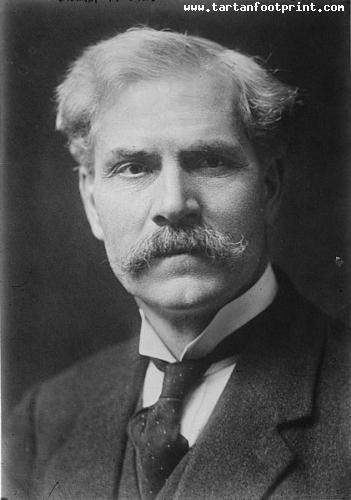You seem to be using an older version of Internet Explorer. This site requires Internet Explorer 8 or higher. Update your browser here today to fully enjoy all the marvels of this site.
October 25, 2018 by Alexander Meldrum
James Ramsay MacDonald, FRS James McDonald Ramsay 1866 – 1937
James Ramsay MacDonald, FRS (né James McDonald Ramsay; 12 October 1866 – 9 November 1937) was a British statesman who was the first Lab...James Ramsay MacDonald, FRS James McDonald Ramsay 1866 – 1937
James Ramsay MacDonald, FRS (né James McDonald Ramsay; 12 October 1866 – 9 November 1937) was a British statesman who was the first Labour Party politician to become Prime Minister.
leading minority Labour governments in 1924 and in 1929–31. He headed a National Government from 1931 to 1935, dominated by the Conservative Party and supported by only a few Labour members.
MacDonald was later vehemently denounced by and expelled from the party he had helped to found.
MacDonald, along with Keir Hardie and Arthur Henderson, was one of the three principal founders of the Labour Party.
He was chairman of the Labour MPs before 1914 and, after an eclipse in his career caused by his opposition to the First World War he was Leader of the Labour Party from 1922. The second Labour Government (1929–31) was dominated by the Great Depression.
He formed the National Government to carry out spending cuts to defend the gold standard; the gold standard had to be abandoned after the Invergordon Mutiny and he called a general election in 1931 seeking a "doctor's mandate" to fix the economy.
The National coalition won an overwhelming landslide and the Labour Party was reduced to a rump of around 50 seats in the House of Commons. His health deteriorated and he stood down as Prime Minister in 1935 and remained as Lord President of the Council until retiring in 1937. He died later that year.
MacDonald's speeches, pamphlets and books made him an important theoretician. Historian John Shepherd states that, "MacDonald's natural gifts of an imposing presence, handsome features and a persuasive oratory delivered with an arresting Highlands accent made him the iconic Labour leader."
After 1931 MacDonald was repeatedly and bitterly denounced by the Labour movement as a traitor to their cause. Since the 1960s historians have defended his reputation, emphasising his earlier role in building up the Labour Party, dealing with the Great Depression, and as a forerunner of the political realignments of the 1990s and 2000s.
Early life
MacDonald was born at Gregory Place, Lossiemouth, Morayshire, Scotland, the illegitimate son of John MacDonald, a farm labourer, and Anne Ramsay, a housemaid.
Registered at birth as James McDonald (sic) Ramsay, he was known as Jaimie MacDonald. Illegitimacy could be a serious handicap in 19th century Presbyterian Scotland, but in the north and northeast farming communities,
this was less of a problem; in 1868, a report of the Royal Commission on the Employment of Children, Young Persons and Women in Agriculture noted that the illegitimacy rate was around 15%, meaning that nearly every sixth person was born out of wedlock.
MacDonald's mother had worked as a domestic servant at Claydale farm, near Alves, where his father was also employed.
They were to have been married, but the wedding never took place, either because the couple quarrelled and chose not to marry, or because Anne's mother, Isabella Ramsay, stepped in to prevent her daughter from marrying a man she deemed unsuitable.
Ramsay MacDonald received an elementary education at the Free Church of Scotland school in Lossiemouth from 1872 to 1875, and then at Drainie parish school.
He left school at the end of the summer term in 1881, at the age of 15, and began work on a nearby farm. In December 1881, he was appointed a pupil teacher at Drainie parish school.
In 1885, he left to take up a position as an assistant to Mordaunt Crofton, a clergyman in Bristol who was attempting to establish a Boys' and Young Men's Guild at St Stephen's Church.
It was in Bristol that Ramsay MacDonald joined the Democratic Federation, a Radical organisation. This federation changed its name a few months later to the Social Democratic Federation (SDF).
He remained in the group when it left the SDF to become the Bristol Socialist Society, & In early 1886 he moved to London
Go to Wikipedia for full History.
In this photo:


